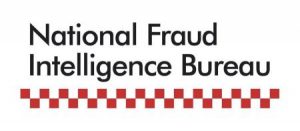 The National Fraud Intelligence Bureau (NFIB) have identified a trend whereby fraudsters are posing as online job agents and are recruiting unsuspecting jobseekers, encouraging them to use their own bank and online sales accounts in order to transfer money from fraudulent sales into accounts.
The National Fraud Intelligence Bureau (NFIB) have identified a trend whereby fraudsters are posing as online job agents and are recruiting unsuspecting jobseekers, encouraging them to use their own bank and online sales accounts in order to transfer money from fraudulent sales into accounts.
Protect Yourself
Buyers
- When making a large purchase such as a new car or machinery, always meet the seller face to face first and ask to see the goods before transferring any money.
- False adverts often offer goods for sale well below market value to entice potential victims; always be cautious.
- Exercise caution when sellers state that they are selling on behalf of a friend, colleague or business.
Jobseekers
- Don’t assume advertised vacancies have been verified by the website or classified advertisement sites upon which they feature. If you suspect a job vacancy to be fraudulent, be sure to notify the website via their reporting/flag functions. Doing so prevents others from becoming victims of fraud and helps organisations and law enforcement tackle and disrupt fraudulent activity.
- Although many legitimate job vacancies are internet based sales roles, those which are vague about the business, product type, sales method or sales platform to be used should be approached with caution. It is always good practice to conduct further enquiries about an advertised role.
- Genuine businesses would never ask you to use your personal bank or online payment accounts to facilitate business transactions, nor would they ask to utilise your personal online marketplace account in order to sell their products. If someone claiming to represent the organisation suggests you do this or asks for your personal details so they can use your account(s) themselves, sever contact.
Scams can be reported to Action Fraud on 0300 123 2040, or online at www.actionfraud.police.uk.

